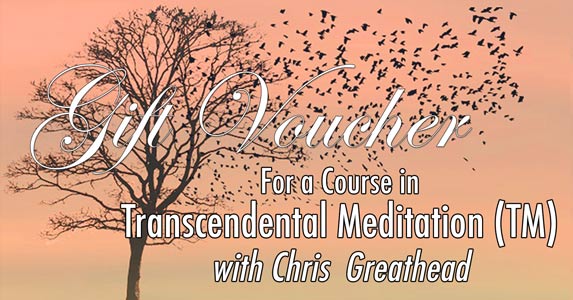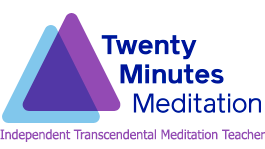Transcendental Meditation used by hippies now for diggers and veterans
www.heraldsun.com.au
ONCE the preserve of Indian gurus, hippies and rock stars, Transcendental Meditation (TM) is now being used to cure soldiers suffering from Post
Save the NHS a fortune! Have to say from my experience of teaching TM over the years this is one of the most commonly reported benefits.
New American Heart Association Report Informs Doctors that Transcendental Meditation® Lowers Blood Pressure
www.sacbee.com
/PRNewswire-iReach/ — A report from the American Heart Association (AHA) published on April 22 concluded that the (TM) technique lowers blood pressure and recommends that TM may be considered in clinical practice for the prevention and treatment of hypertension.
What can you say : http://qz.com/76717/rupert-murdoch-transcendental-meditation/
Through the ’60s, the Beach Boys had a friendly rivalry — more like a mutual admiration society — with their fellow chart-toppers, the Beatles. (For instance, the Beach Boys’ landmark “Pet Sounds” was Brian Wilson’s response to the Beatles’ “Rubber Soul.”) Love and the Beatles crossed paths when they made a pilgrimage to India in 1968 to study under Maharishi Mahesh Yogi.
“The Beatles were invited by the Maharishi separately,” Love recalled. “Mia Farrow was there. Donovan and the Beatles went from England. I flew from L.A. to Hawaii to Japan to Thailand and finally to Delhi in February of 1968.
“It was one of the most fascinating experiences I’ve ever had. There were long hours of meditation and imparting of knowledge about ancient technologies that go back to — nobody knows how long. We (Love and the Beatles) were both new to meditation. But I think we missed out on the purpose of the event.”
Because, Love believes, the Maharishi’s intention was to convert the musicians into teachers of transcendental meditation.
“But the Beatles brought guitars, and there was a lot of music going on,” Love said. “So we really weren’t getting what it was about, which was to teach T.M. Subsequently, I became a teacher of T.M. “It was probably the most remarkable time of my life. In fact, to this day, I meditate every day. It’s a great way to counteract the stress of life, rather than resorting to drugs or alcohol.”
Interesting article given that one of the major benefits of meditation that many (but not all) people find is improved sleep.
Poor sleep linked to heart failure, Norwegian study says:
http://www.bbc.co.uk/news/health-21667943
www.bbc.co.uk
“One of the signs of an approaching nervous breakdown is the belief that one’s work is terribly important.”
Bertrand Russell ~ British philosopher
Just came across this & thought how very appropriate, meditation definitely gives one those regular moments of peace & clarity which help keep things in perspective.
The US National Institute of Health has spent more than $25 million on TM studies, which show that it decreases anxiety, high blood pressure, rates of heart attack and stroke as well as substance abuse, addiction, and depression.
Every 65 minutes, a U.S. military veteran committed suicide in 2010. That’s according to a comprehensive study released last Friday by the Department of Veteran Affairs, which tracked veteran suicides from 1999 to 2010 (PDF). Then there are the suicides of active-duty service members: Last year they outpaced combat deaths, hitting a record high of 349.
These alarming statistics—as well as such tragedies as last week’s murder of Chris Kyle, a highly decorated Navy SEAL sniper, by an ex-Marine—may be one reason why the U.S. military is exploring alternative means of preventing and treating post-traumatic stress disorder, known as PTSD. Among the alternatives is meditation.
The military’s first foray into meditation goes back to 1985, when it found in a small pilot study that Transcendental Meditation—a trademarked technique first introduced by the Beatles’ guru, Mahareshi Mahesh Yogi—significantly decreased the stress and anxiety levels of Vietnam veterans. Within three months, 70 percent of the meditating vets no longer needed the support services of their veterans’ center.
Despite these positive results, “It hasn’t been until the last few years that there has been a more official interest,” says Bob Roth, executive director of the David Lynch Foundation, which promotes Transcendental Meditation to treat PTSD. “I think the reason why they’re really looking at Transcendental Meditation now is that the problem is so acute.”
TM is one of three major branches of meditation, all of which have different effects on the body and brain. Several U.S. vets say the technique helped them overcome severe mental distress. On Monday, Luke Jensen, a veteran of Operation Enduring Freedom, described at a fundraiser for the David Lynch Foundation at the New York Athletic Club how he became suicidal in Afghanistan and later put a gun to his head and threatened to kill himself in front of his wife and young children. He says TM brought him back from the edge. “It was the first time in so long that I felt hope,” he said. Jerry Yellin, a fighter pilot in World War II, told of how he lived with nightmares, behavioral disorders, and addiction for 30 years before trying meditation. “I got my life back 100 percent,” said Yellin, who is now co-chairman of Operation Warrior Wellness. “150 percent.”
A small pilot study at the private military college, Norwich University, also showed that first year “rooks” who practiced TM twice daily were more alert and achieved better grades than those who weren’t meditating. Without TM, “I’d definitely be falling asleep in every single class,” said one rook, interviewed for a video documenting the study.
The Department of Defense last year granted the Maharishi University of Management Research Institute and the San Diego Veterans Administration Medical Center $2.4 million to further research the effectiveness of using TM to treat PTSD. The military is also exploring other types of meditation, according to Captain John Golden of the Deployment Health Clinical Center. Among them are Integrative Restoration Meditation, which has been proven effective as an adjunct treatment for PTSD, and Mindfulness. No one, to date, has performed studies comparing the techniques, says Roth. “I think they should. It’s not about who wins, but what works,” he says.
The National Institute of Health has spent more than $25 million on TM studies, which show that it decreases anxiety, blood pressure, rates of heart attack, stroke, and death, as well as substance abuse, addiction, and depression. But TM is also pricey. For civilians, training costs $1000 a pop (although discounts are available). Training for troops costs $500 per head, and the David Lynch Foundation raises money to cover those costs.
The military isn’t paying for meditation training yet, says Robert Cancro, professor and chairman emeritus of psychiatry at NYU Longone Medical Center. He says most DOD treatment spending goes toward drugs. Other than costs and pending research, Cancro says we must still overcome a lingering distrust of meditation. “There’s a stigma associated with meditation that is not associated with taking Valium, and that’s really unfortunate.”
Winter is a reporter for Bloomberg Businessweek in New York.
Contact
Tel: 07969 211886
Email: info@twentyminutesmeditation.co.uk
TM Newsletter
Keep in touch by joining our newsletter. Please rest assured we will never pass on your email address to anyone else.
TM Gift Vouchers

Gift vouchers now available for our online courses – read more




